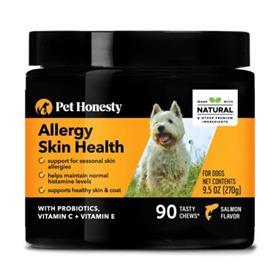Our pets bring joy and companionship into our lives, enriching our days with their playful antics and unconditional love. As pet owners, it’s our responsibility to ensure their well-being and happiness. One vital aspect of pet health that often goes overlooked is the condition of their skin and coat. Just like humans, pets can suffer from a range of skin issues that can affect their overall wellness. The good news is that nurturing healthy skin in our furry friends can be achieved through thoughtful dietary choices and the right supplements. In this article, we’ll explore how you can enhance your pet’s skin health, boost their vitality, and ensure they feel as good as they look. Let’s embark on this journey to understand the connection between nutrition, supplements, and the radiant skin your pet deserves.
Choosing the Right Nutrients for Your Pets Skin Health
Ensuring your pet’s skin remains healthy involves more than just regular grooming; it starts with the right nutrients. Incorporate foods rich in omega-3 and omega-6 fatty acids such as fish oil or flaxseed, which are known to reduce inflammation and promote a shiny coat. Antioxidants found in foods like blueberries and spinach can protect your pet’s skin from environmental damage. Consider adding a supplement that contains vitamin E to support skin repair and maintain moisture balance.
- Omega Fatty Acids: Enhance coat shine and reduce itching.
- Antioxidants: Protect against free radicals and support overall skin health.
- Vitamin E: Aids in skin repair and moisture retention.
It’s also important to monitor your pet’s diet for any potential allergens that might cause skin irritation. Protein sources like chicken, lamb, or venison can sometimes trigger allergies, so consult with a vet to tailor a diet plan that suits your pet’s unique needs. By focusing on these essential nutrients and being mindful of potential allergens, you can significantly enhance your pet’s skin health and overall well-being.
Understanding the Role of Omega Fatty Acids in Skin Wellness
Omega fatty acids are essential for maintaining vibrant and resilient skin in pets. These beneficial fats, found primarily in fish oil and certain plant oils, are renowned for their ability to enhance skin hydration and elasticity. They work by fortifying the skin’s natural barrier, reducing moisture loss and shielding against environmental irritants. This is particularly important for pets prone to dry, itchy skin or conditions such as dermatitis.
Integrating omega fatty acids into your pet’s diet can yield noticeable improvements in their skin health. Here are some key benefits:
- Anti-inflammatory Properties: Omega-3 and Omega-6 fatty acids can help reduce inflammation, alleviating symptoms of allergies and skin irritations.
- Enhanced Skin Barrier Function: These nutrients bolster the skin’s barrier, minimizing water loss and keeping the skin hydrated.
- Improved Coat Quality: Regular intake can lead to a shinier, softer coat, reflecting your pet’s overall health.
Incorporating a balanced diet enriched with these fatty acids, along with appropriate supplements, can significantly contribute to your pet’s skin wellness. Always consult with a veterinarian to tailor the right dosage and ensure optimal results for your furry friend’s specific needs.

Incorporating Antioxidants for a Radiant Coat
To ensure your pet’s coat remains vibrant and healthy, incorporating antioxidants into their diet can be a game-changer. Antioxidants play a vital role in combating oxidative stress, which can lead to dull and lifeless fur. By enriching your pet’s meals with these powerful nutrients, you are not only enhancing their coat but also boosting their overall health.
- Vitamin E: Found in leafy greens and nuts, this vitamin helps protect cells from damage and supports skin health.
- Vitamin C: While commonly associated with immune support, this antioxidant also promotes collagen production, which is essential for maintaining a strong and shiny coat.
- Beta-Carotene: This precursor to Vitamin A, found in carrots and sweet potatoes, aids in skin repair and regeneration.
- Selenium: Present in fish and certain grains, selenium works synergistically with Vitamin E to protect against cell damage.
Including these antioxidants in your pet’s diet, either through whole foods or supplements, can lead to noticeable improvements in their coat’s radiance and texture. Always consult with your veterinarian to tailor the best plan for your pet’s unique needs.

Guidelines for Safe Supplement Use in Pets
Ensuring the safe use of supplements for your pets involves a few key practices that can significantly enhance their health without unintended side effects. Consultation with a veterinarian is paramount; they can provide guidance on which supplements are appropriate based on your pet’s specific needs and health conditions. Always prioritize quality over quantity, choosing products from reputable brands that have undergone rigorous testing for safety and efficacy.
- Start slowly: Introduce new supplements gradually to monitor how your pet reacts.
- Follow dosage instructions: Over-supplementation can lead to adverse effects.
- Keep a record: Document any changes in behavior or health to share with your vet.
By adhering to these guidelines, you can safely incorporate supplements into your pet’s diet, supporting their skin health and overall wellness in a balanced and effective manner.

